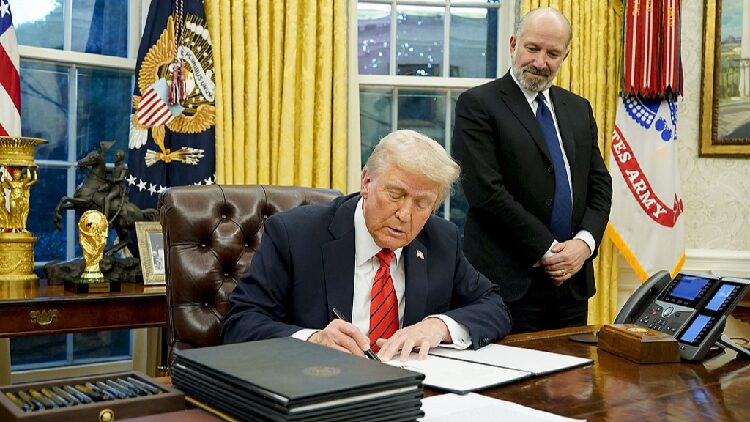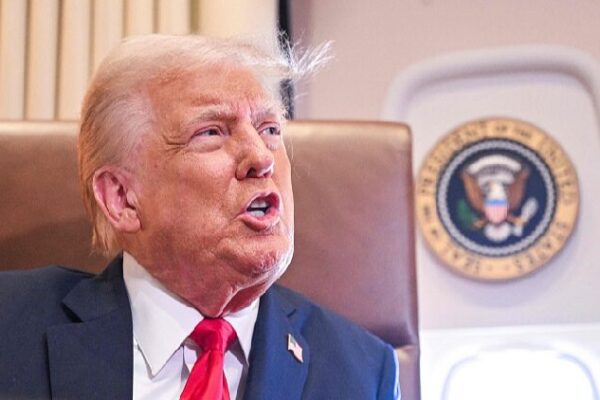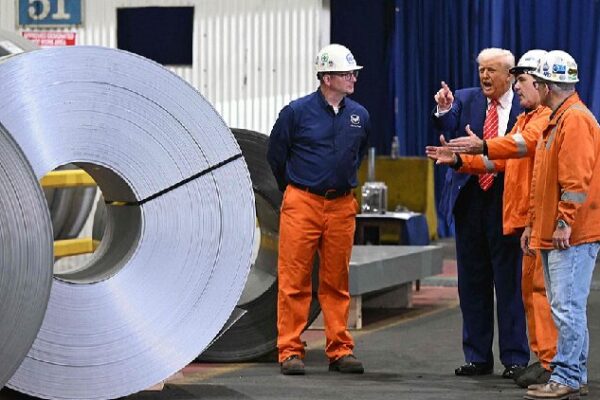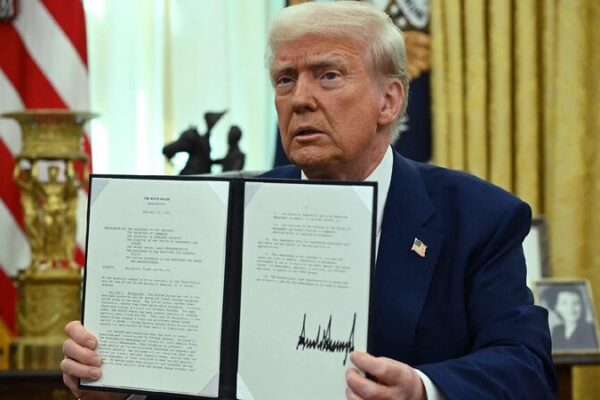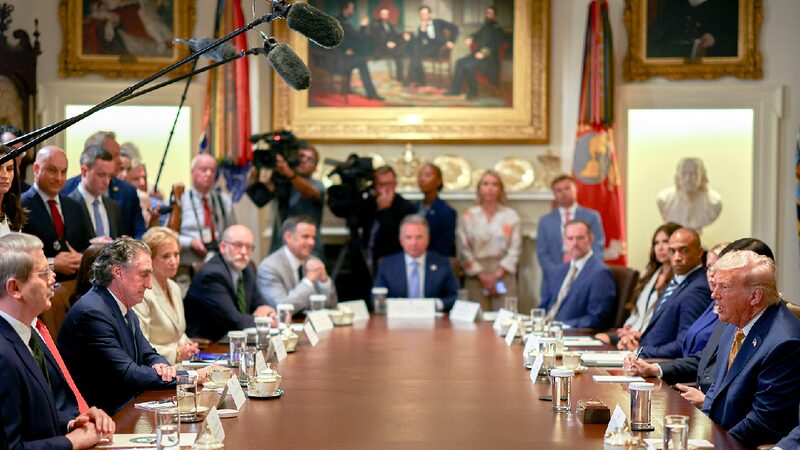U.S. President Donald Trump signed an executive order on Monday imposing new tariffs on steel and aluminum imports, sparking widespread outrage and prompting retaliatory measures from major trading partners around the world.
The tariffs, set at 25 percent, are slated to take effect on March 4 and will be applied to all countries without exceptions. “That’s all countries, no matter where it comes from, all countries,” Trump told reporters. He later mentioned he would consider Australia’s request for an exemption due to that country’s trade deficit with the U.S.
The new measures also introduce a North American standard requiring steel imports to be “melted and poured,” and aluminum to be “smelted and cast” within the region. This aims to curb imports of minimally processed metals from other countries that circumvent existing tariffs. Additionally, the tariffs will extend to downstream products using foreign-made steel, including fabricated structural steel, aluminum extrusions, and steel strands for pre-stressed concrete.
While signing the order at the White House, Trump announced plans to implement reciprocal tariffs on countries that impose duties on U.S. goods within the next two days. He added that he is also considering tariffs on cars, semiconductor chips, and pharmaceuticals.
This move echoes actions from 2018, during Trump’s previous administration, when similar tariffs on steel and aluminum imports from Canada, Mexico, and the European Union led to swift retaliations. The European Union imposed countermeasures on U.S. goods such as whiskey, motorcycles, and orange juice. These tariffs increased costs for U.S. companies and were often passed on to consumers, according to a report from the Tax Foundation.
Global Reactions and Retaliations
The latest tariffs have raised concerns about a potential multi-front trade war, with several countries indicating their readiness to retaliate.
The European Commission swiftly condemned the U.S. tariffs, stating there is “no justification” for the measures, which it described as unlawful and economically harmful. “Tariffs are essentially taxes,” the commission said in a statement, warning that the move would increase costs for American businesses, drive inflation, and disrupt global markets. The European Union cautioned that these measures would ultimately act as a tax on U.S. consumers.
French Foreign Minister Jean-Noel Barrot warned that the European Union will not hesitate to defend its interests, echoing its swift retaliatory actions in 2018. Germany is also preparing countermeasures, with a spokesperson for the Federal Ministry for Economic Affairs and Climate Action stating that while efforts are being made to prevent the tariffs, they stand ready to respond if necessary.
The United Kingdom, one of the U.S.’s largest trading partners, criticized the move as well. Gareth Stace, director general of trade body UK Steel, called the tariffs “a devastating blow” to the industry. “At a time of shrinking demand and high costs, rising protectionism, particularly from the U.S., will stifle our exports and damage over 400 million pounds worth of the steel sector’s contribution to the UK’s balance of trade,” he said.
Canada, a major supplier of aluminum and steel to the U.S., denounced the tariffs as “totally unjustified.” Canadian Industry Minister Francois-Philippe Champagne emphasized that Canadian metals support key U.S. industries including defense, shipbuilding, energy, and automotive sectors. “Our response will be clear and calibrated,” he said, noting that Canada is examining the details of the tariffs.
Mexico’s President Claudia Sheinbaum adopted a more cautious approach, stating she would wait for further details before taking action. “We will always defend the dignity of our people, respect for our sovereignty, and a dialogue as equals without subordination,” she said.
Potential Impact on the U.S. Economy
Steel imports accounted for about 23 percent of American steel consumption in 2023, with Canada, Brazil, and Mexico being the largest suppliers. Canada’s abundant hydropower resources aid its metal production, making it a significant exporter to the U.S.
The new tariffs have raised concerns among U.S. manufacturers that rely on imported metals. Increased costs could lead to higher prices for consumers and may impact jobs in industries that use steel and aluminum extensively.
As global tensions rise, the possibility of a trade war looms, which could have far-reaching consequences for the global economy. Experts warn that escalating trade disputes may lead to economic uncertainty and disrupt international supply chains.
Reference(s):
Trump raises tariffs on aluminum, steel, sparking widespread outrage
cgtn.com
